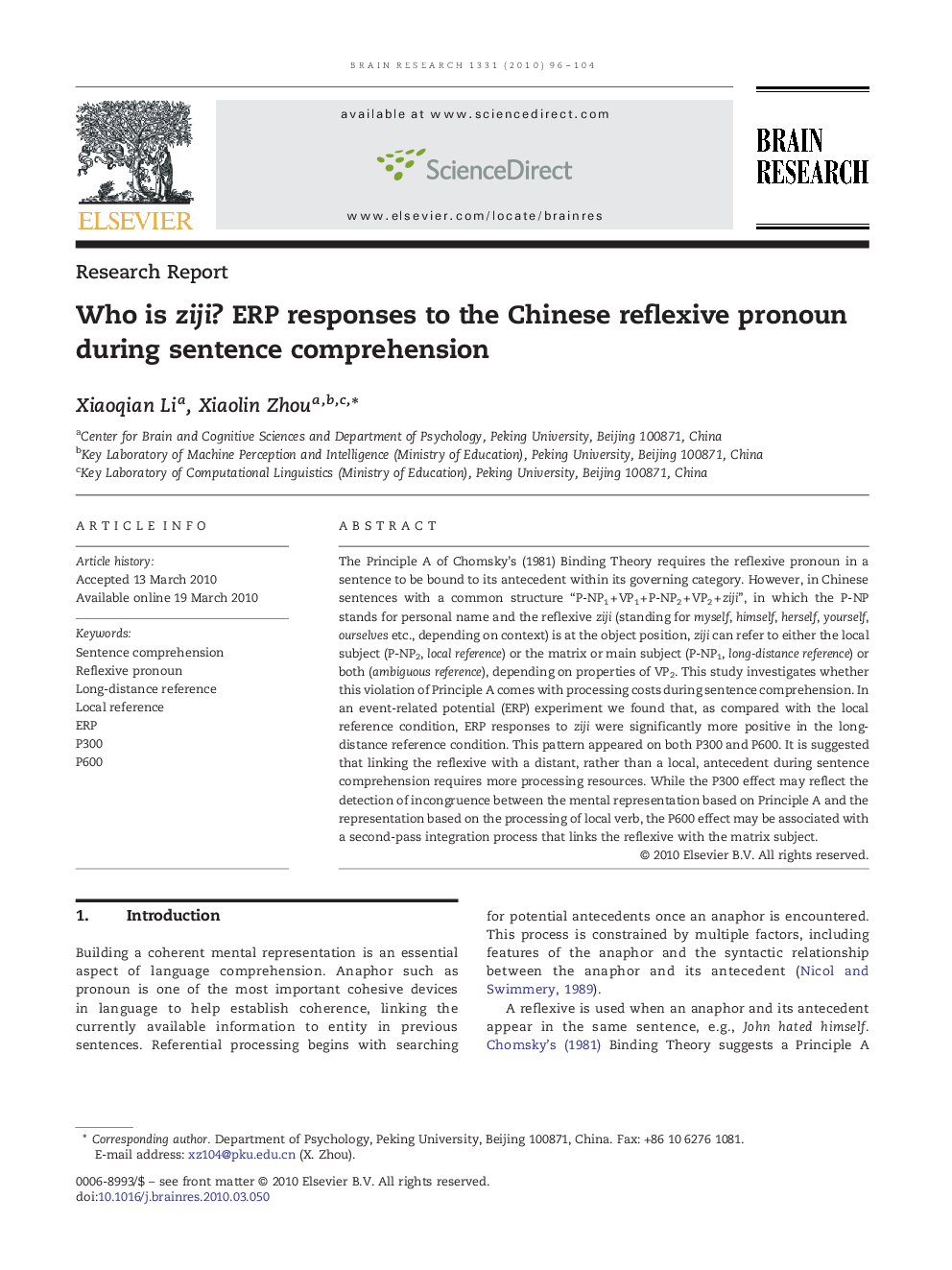| کد مقاله | کد نشریه | سال انتشار | مقاله انگلیسی | نسخه تمام متن |
|---|---|---|---|---|
| 4327037 | 1614108 | 2010 | 9 صفحه PDF | دانلود رایگان |

The Principle A of Chomsky's (1981) Binding Theory requires the reflexive pronoun in a sentence to be bound to its antecedent within its governing category. However, in Chinese sentences with a common structure “P-NP1 + VP1 + P-NP2 + VP2 + ziji”, in which the P-NP stands for personal name and the reflexive ziji (standing for myself, himself, herself, yourself, ourselves etc., depending on context) is at the object position, ziji can refer to either the local subject (P-NP2, local reference) or the matrix or main subject (P-NP1, long-distance reference) or both (ambiguous reference), depending on properties of VP2. This study investigates whether this violation of Principle A comes with processing costs during sentence comprehension. In an event-related potential (ERP) experiment we found that, as compared with the local reference condition, ERP responses to ziji were significantly more positive in the long-distance reference condition. This pattern appeared on both P300 and P600. It is suggested that linking the reflexive with a distant, rather than a local, antecedent during sentence comprehension requires more processing resources. While the P300 effect may reflect the detection of incongruence between the mental representation based on Principle A and the representation based on the processing of local verb, the P600 effect may be associated with a second-pass integration process that links the reflexive with the matrix subject.
Journal: Brain Research - Volume 1331, 17 May 2010, Pages 96–104